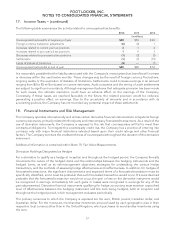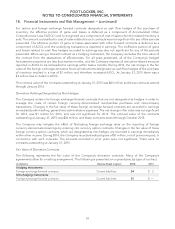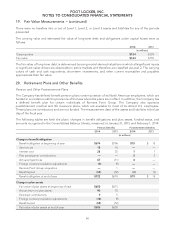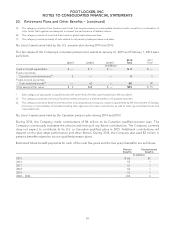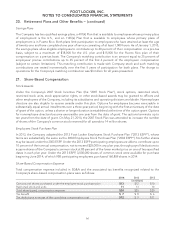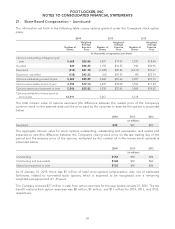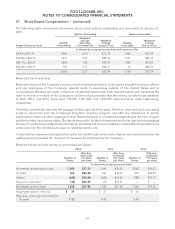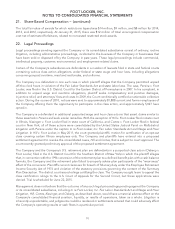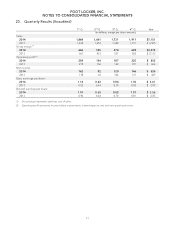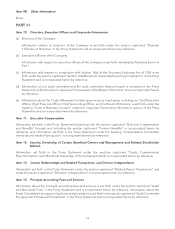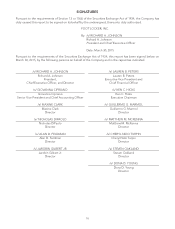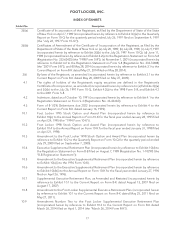Foot Locker 2014 Annual Report Download - page 90
Download and view the complete annual report
Please find page 90 of the 2014 Foot Locker annual report below. You can navigate through the pages in the report by either clicking on the pages listed below, or by using the keyword search tool below to find specific information within the annual report.
FOOT LOCKER, INC.
NOTES TO CONSOLIDATED FINANCIAL STATEMENTS
21. Share-Based Compensation − (continued)
Valuation Model and Assumptions
The Company uses a Black-Scholes option-pricing model to estimate the fair value of share-based awards. The
Black-Scholes option-pricing model incorporates various and highly subjective assumptions, including
expected term and expected volatility.
The Company estimates the expected term of share-based awards granted using the Company’s historical
exercise and post-vesting employment termination patterns, which it believes are representative of future
behavior. The expected term for the employee stock purchase plan valuation is based on the length of each
purchase period as measured at the beginning of the offering period, which is one year.
The Company estimates the expected volatility of its common stock at the grant date using a weighted-average
of the Company’s historical volatility and implied volatility from traded options on the Company’s common
stock. The Company believes that the combination of historical volatility and implied volatility provides a better
estimate of future stock price volatility.
The risk-free interest rate assumption is determined using the Federal Reserve nominal rates for U.S. Treasury
zero-coupon bonds with maturities similar to those of the expected term of the award being valued. The
expected dividend yield is derived from the Company’s historical experience.
The Company records share-based compensation expense only for those awards expected to vest using an
estimated forfeiture rate based on its historical pre-vesting forfeiture data. The Company estimates pre-vesting
option forfeitures at the time of grant and periodically revises those estimates in subsequent periods if actual
forfeitures differ from those estimates.
The following table shows the Company’s assumptions used to compute the share-based compensation
expense:
Stock Option Plans Stock Purchase Plan
2014 2013 2012 2014 2013 2012
Weighted-average risk free rate of
interest 2.07% 1.02% 1.49% 0.14% 0.17% 0.22%
Expected volatility 39% 42% 43% 24% 40% 38%
Weighted-average expected award
life (in years) 6.1 6.0 5.5 1.0 1.0 1.0
Dividend yield 1.9% 2.3% 2.3% 2.0% 2.3% 2.5%
Weighted-average fair value $15.30 $10.98 $10.13 $7.35 $5.79 $6.11
67


